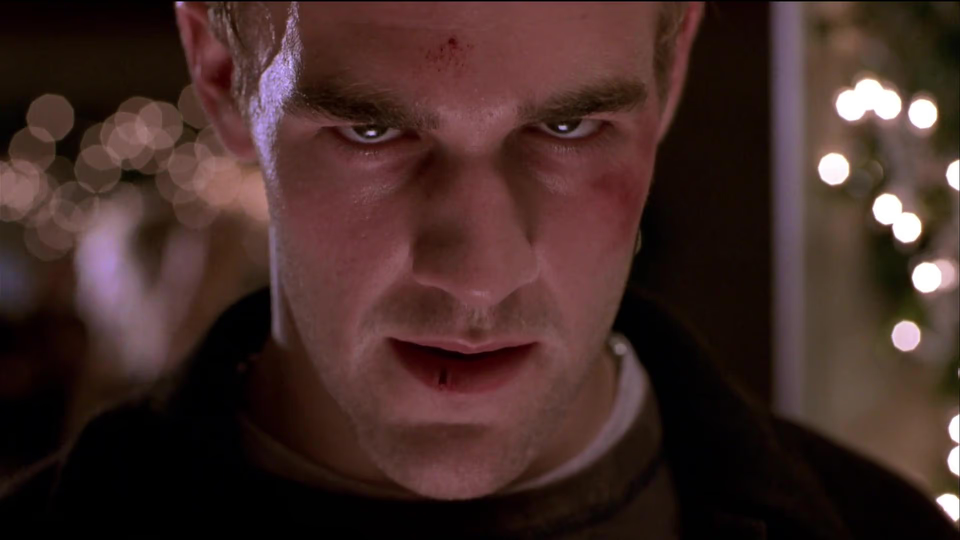The Rules of Attraction

Based on the novel by Bret Easton Ellis, the interconnected stories of several rich, disaffected youths (James Van Der Beek, Shannyn Sossamon, Ian Somerhalder, and Kip Pardue) at an Ivy-League school.
The Rules of Attraction is a biting, unflinching look at the basest of human appetites, and how people can be monsters without even realizing it. Screenwriter/director Roger Avary immerses you in a self-contained world of privilege and decadence, only to gradually reveal how, without ambition, it’s all hollow and empty.
The resulting film is at times funny, at times disturbing, and often both simultaneously. This dichotomy is illustrated nicely in the opening sequence, which caused half the audience I saw it with to promptly get up and file out of the theater. Half of the remaining viewers left later during a particularly brutal suicide sequence that’s neither as graphic nor as prolonged as you remember, but a testament to Avary’s skills as a filmmaker that it seems so.
Those that argue that this film has no basis in reality are missing the point. This film isn’t meant to reflect a real college, it’s meant to reflect a real group of people. The sons and daughters of America’s elite, the beautiful and rich who’ve never had to work for anything and never will. The men and women lacking in ambition because there’s nothing left for them to want. This film is about that state of being and the moral vacuum this creates.
It paints its characters as neither heroes nor villains; they simply exist in their world, a product of their bodies and their environment. Even the film’s circular nature is a play on this same theme, that nothing is new and everything is cyclical. They’ll become their parents and their children will become them, and on, and on.
Sure, there will be some who find this kind of bleak look at humanity too much to bear. The darkness and moral decay present in each of the characters will seem too ugly, too far removed from their own value system, no matter how well presented. But those willing to look into the abyss will find themselves rewarded with a thought-provoking look at what it means to have everything, and how awful that would really be.